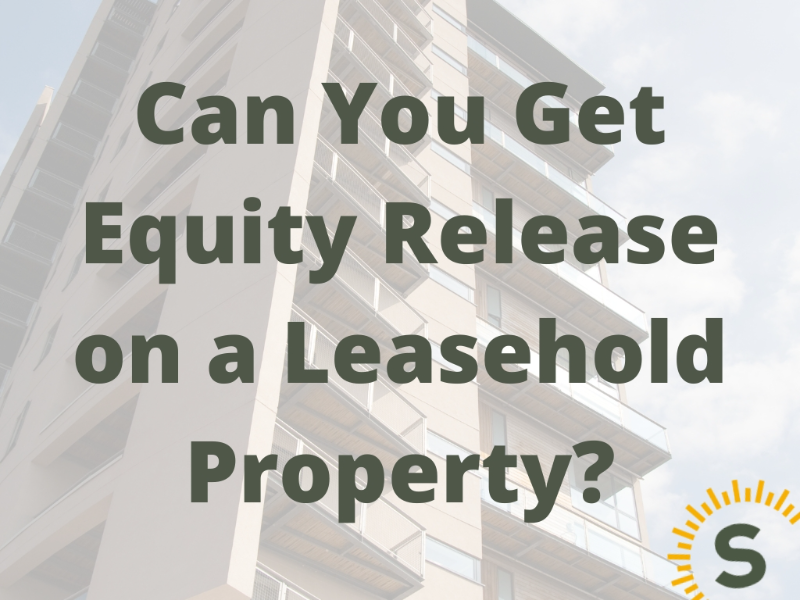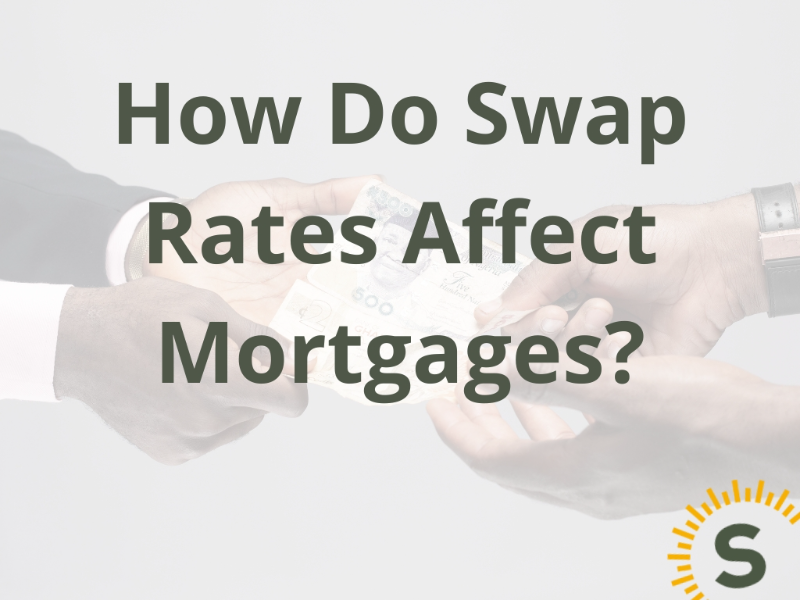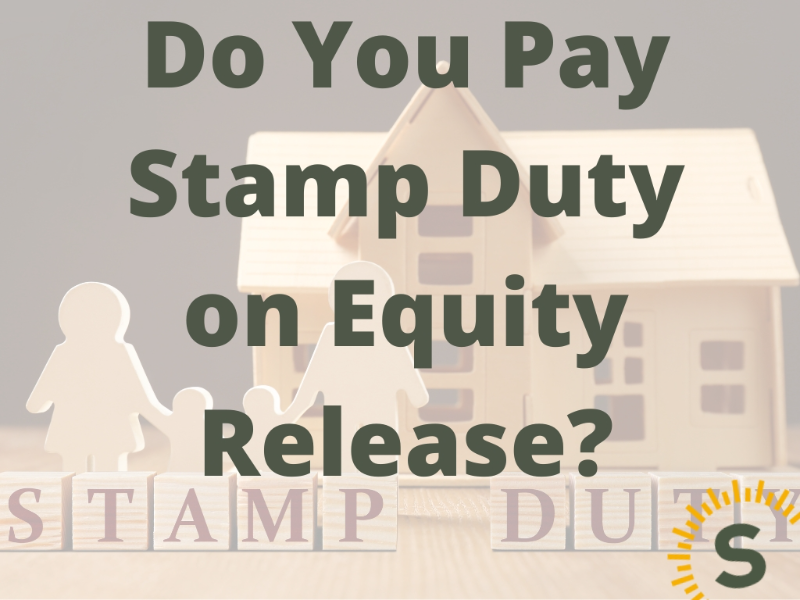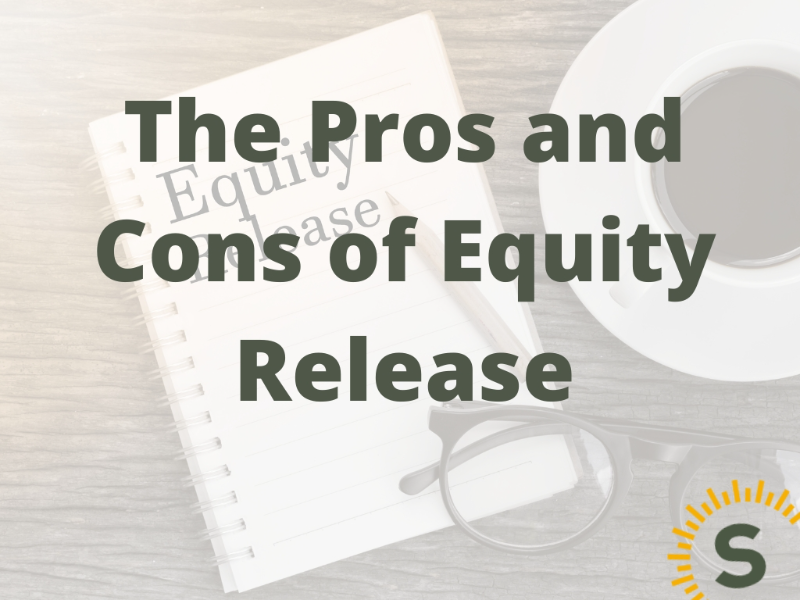
In the UK, there are 4.86 million leasehold properties according to the governments statistics. This number grows year on year as we move towards building more flats in urban areas. Many older leasehold owners are going to begin to think about their retirement options, wondering:
Can you get equity release on a leasehold property? Equity release can provide a valuable source of income for homeowners looking to access the equity in their property. However, for leasehold properties, there are additional considerations that need to be taken into account.
In this insight, we explore whether it is possible to get equity release on a leasehold property and what factors may affect your eligibility.
Equity release is possible on a leasehold property. However, eligibility will depend on factors such as the length of the lease, ground rent charges, building insurance, and sell-on fees.
Additional information will need to be provided to the equity release adviser.
In the UK, a leaseholder is someone who owns a leasehold property, typically a flat or apartment, for a fixed term of years.
This differs from freehold ownership, in which the homeowner owns the land and the property on it outright.
As a leaseholder, you have the right to occupy the property for the length of the lease, subject to the terms of the lease agreement.
When looking at equity release options, you can consider both lifetime mortgages and home reversion plans.
The amount you can release through equity release on your leasehold property depends on the type of property you own.
If it's a purpose-built block of flats, you can usually release up to 80% of its value. If it's a house in a conservation area, you may be able to release even more.
Try our Equity Release Calculator for an idea of how much equity you could release.
You are able to get equity release on many types of leasehold property. Some of these may require a specialist lender. However, it is still possible to get approval with the right advice.
Different equity release lenders have varying requirements for the minimum number of years remaining on a leasehold property for eligibility, which can range from 75 to 125 years. However, it is possible to use equity release funds to pay for a lease extension, provided the extension is reviewed and approved by the lender.
It is important to note that the lease extension and equity release application must happen simultaneously, and the extension process can take up to six months.
Understanding these factors can help leasehold property owners make informed decisions about using equity release as a financial option.
To find out the length of your lease, you should check your lease agreement or ask the freeholder or management agency for a copy of the lease.
The length of your lease will be stated in the lease agreement and is typically measured in years.
It should also have been published on your purchase paperwork, so it might be an idea to dig that out.
To extend your lease when it is too short, you have two options. First, you can agree to extend the lease as a legal condition of the equity release loan. You will need to hire a solicitor to execute the lease extension work at the same time the loan is settled.
Alternatively, you could consider becoming the freeholder of the building if you are in a small block of flats with leases under 70 years. For example, if all the leases in the block are under 70 years, it may be necessary to extend the lease or become the freeholder of the building.
For example: Let's say John is 70 years old and lives in a flat with a remaining lease of 65 years. He wants to take out an equity release loan to supplement his retirement income. He consults with an equity release adviser, who informs him that his lender requires a minimum lease term of 70 years. The adviser suggests that John appoints a solicitor to execute a lease extension simultaneously as the loan is settled.
John agrees and appoints a solicitor, who works to extend the lease as a condition of the equity release loan.
Once the lease extension is complete, the equity release loan can be finalised. As a result, John is able to supplement his retirement income and live comfortably in his home without having to worry about the length of his lease.
Getting the right advice on equity release is crucial. Before you make any decisions you should consider talking through your options with an equity release adviser. If you're unsure where to start, complete the Sunny Fact Find for Equity release advice.
The answers you provide help us to find the best suited adviser. Your adviser then contacts you for a no obligation conversation around how they can help. You decide how to proceed.

Stuart is an expert in Property, Money, Banking & Finance, having worked in retail and investment banking for 10+ years before founding Sunny Avenue. Stuart has spent his career studying finance. He holds qualifications in financial studies, mortgage advice & practice, banking operations, dealing & financial markets, derivatives, securities & investments.
 No minimum
No minimum  Leyland, Lancashire
Leyland, Lancashire No obligation consultation
No obligation consultation
 No minimum
No minimum  No obligation consultation
No obligation consultation
 No minimum
No minimum  Free Consultations
Free Consultations
 No minimum
No minimum  No obligation consultation
No obligation consultation
 No minimum
No minimum  Initial fee free consultation
Initial fee free consultation
 No minimum
No minimum  Initial fee free consultation
Initial fee free consultation
 £51,000+
£51,000+  Free Consultations
Free Consultations
 No minimum
No minimum  Initial fee free consultation
Initial fee free consultation
 £101,000+
£101,000+  Bishop's Stortford, Hertfordshire
Bishop's Stortford, Hertfordshire No obligation consultation
No obligation consultation
 No minimum
No minimum  Initial or Ongoing Consultation Fees
Initial or Ongoing Consultation Fees
 No minimum
No minimum  Initial fee free consultation
Initial fee free consultation
 No minimum
No minimum  Initial fee free consultation
Initial fee free consultation
 £51,000+
£51,000+  Sheffield, South Yorkshire
Sheffield, South Yorkshire No obligation consultation
No obligation consultation
 No minimum
No minimum  No obligation consultation
No obligation consultation
 No minimum
No minimum  Newcastle-under-Lyme, Staffordshire
Newcastle-under-Lyme, Staffordshire Free Consultations
Free Consultations
 No minimum
No minimum  Free Consultations
Free Consultations
 No minimum
No minimum  No obligation consultation
No obligation consultation
 No minimum
No minimum  No obligation consultation
No obligation consultation
 No minimum
No minimum  Free Consultations
Free Consultations
 No minimum
No minimum  No obligation consultation
No obligation consultation
 No minimum
No minimum  Coatbridge, Lanarkshire
Coatbridge, Lanarkshire Initial or Ongoing Consultation Fees
Initial or Ongoing Consultation Fees
 No minimum
No minimum  Initial or Ongoing Consultation Fees
Initial or Ongoing Consultation Fees
 £21,000 +
£21,000 +  Initial fee free consultation
Initial fee free consultation
 London, Greater London
London, Greater London No obligation consultation
No obligation consultation
 No minimum
No minimum  No obligation consultation
No obligation consultation





Our website offers information about financial products such as investing, savings, equity release, mortgages, and insurance. None of the information on Sunny Avenue constitutes personal advice. Sunny Avenue does not offer any of these services directly and we only act as a directory service to connect you to the experts. If you require further information to proceed you will need to request advice, for example from the financial advisers listed. If you decide to invest, read the important investment notes provided first, decide how to proceed on your own basis, and remember that investments can go up and down in value, so you could get back less than you put in.
Think carefully before securing debts against your home. A mortgage is a loan secured on your home, which you could lose if you do not keep up your mortgage payments. Check that any mortgage will meet your needs if you want to move or sell your home or you want your family to inherit it. If you are in any doubt, seek independent advice.